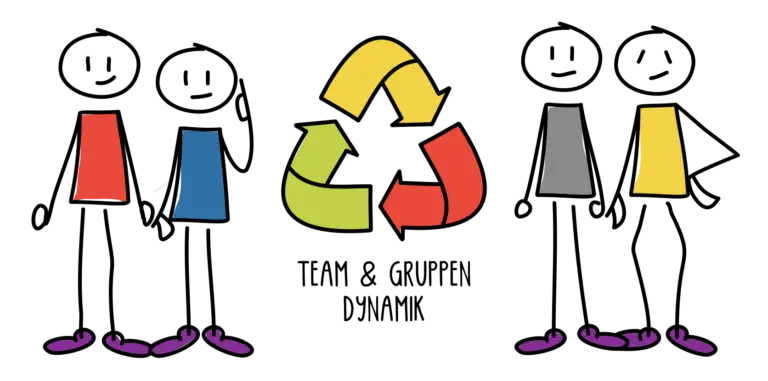
(Henry Ford)
Everywhere we live and work in groups. Family, circle of friends, clubs, up to the colleagues and teams with whom we work every day.
Every group is subject to a group dynamic process that we go through over and over again and that only in the end enables the desired result: a constructive and highly effective living and working together.
We can neither accelerate this process nor skip any of the five phases. However, we can accompany this process constructively in order to help the groups to mature into a workable team with little friction.
All training sessions can be conducted both live and remotely.
In a remote setting, we offer many opportunities and examples of remote collaboration in teams. This supports with additional know-how for remote-first work.
understand the tuckman dynamics model
Determine needs and helpful interventions.
Dealing with change and promoting resilience
The basics of non-violent communication as a basis for empathic interaction with oneself and others.
The training includes two working days for a face-to-face training and 3 days for the remote version.
On the first day we work from 10am-6pm.
On the second day from 9-17 hrs.
For in-house training, the premises, including catering if necessary, are organised and provided by the client.
For online trainings we work with Zoom and Miro.
We will probably train with two trainers and possibly an assistant. The number of participants can vary live from 12 to max. 16 participants.
In online trainings we can increase the number of participants to 25.
Our fee for in-house training is calculated from our flat participant fee plus VAT.
In live training sessions, the participants contribute their experiences on the topic and can try them out directly after short impulse lectures in subsequent training units.
In remote settings, participants can also contribute their experiences on the topic and, after short impulse lectures, directly test them in subsequent training sessions in breakout rooms.
We offer regular reflection sessions so that you can integrate what you have learned into your everyday life in the best possible way.
We work in small groups, plenary sessions and in pairs and look at the principles behind the agile way of working.